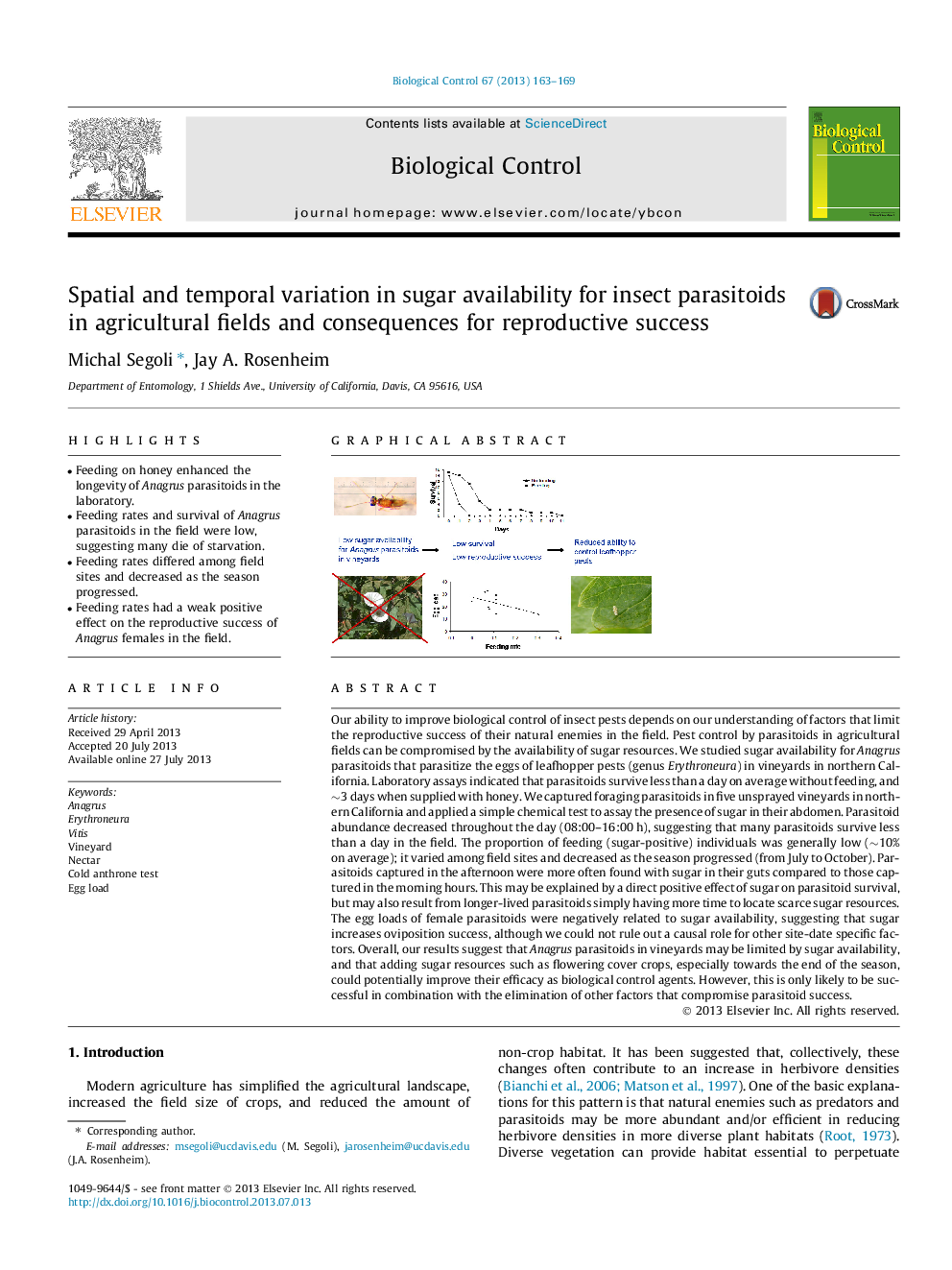| Article ID | Journal | Published Year | Pages | File Type |
|---|---|---|---|---|
| 4504047 | Biological Control | 2013 | 7 Pages |
•Feeding on honey enhanced the longevity of Anagrus parasitoids in the laboratory.•Feeding rates and survival of Anagrus parasitoids in the field were low, suggesting many die of starvation.•Feeding rates differed among field sites and decreased as the season progressed.•Feeding rates had a weak positive effect on the reproductive success of Anagrus females in the field.
Our ability to improve biological control of insect pests depends on our understanding of factors that limit the reproductive success of their natural enemies in the field. Pest control by parasitoids in agricultural fields can be compromised by the availability of sugar resources. We studied sugar availability for Anagrus parasitoids that parasitize the eggs of leafhopper pests (genus Erythroneura) in vineyards in northern California. Laboratory assays indicated that parasitoids survive less than a day on average without feeding, and ∼3 days when supplied with honey. We captured foraging parasitoids in five unsprayed vineyards in northern California and applied a simple chemical test to assay the presence of sugar in their abdomen. Parasitoid abundance decreased throughout the day (08:00–16:00 h), suggesting that many parasitoids survive less than a day in the field. The proportion of feeding (sugar-positive) individuals was generally low (∼10% on average); it varied among field sites and decreased as the season progressed (from July to October). Parasitoids captured in the afternoon were more often found with sugar in their guts compared to those captured in the morning hours. This may be explained by a direct positive effect of sugar on parasitoid survival, but may also result from longer-lived parasitoids simply having more time to locate scarce sugar resources. The egg loads of female parasitoids were negatively related to sugar availability, suggesting that sugar increases oviposition success, although we could not rule out a causal role for other site-date specific factors. Overall, our results suggest that Anagrus parasitoids in vineyards may be limited by sugar availability, and that adding sugar resources such as flowering cover crops, especially towards the end of the season, could potentially improve their efficacy as biological control agents. However, this is only likely to be successful in combination with the elimination of other factors that compromise parasitoid success.
Graphical abstractFigure optionsDownload full-size imageDownload as PowerPoint slide
